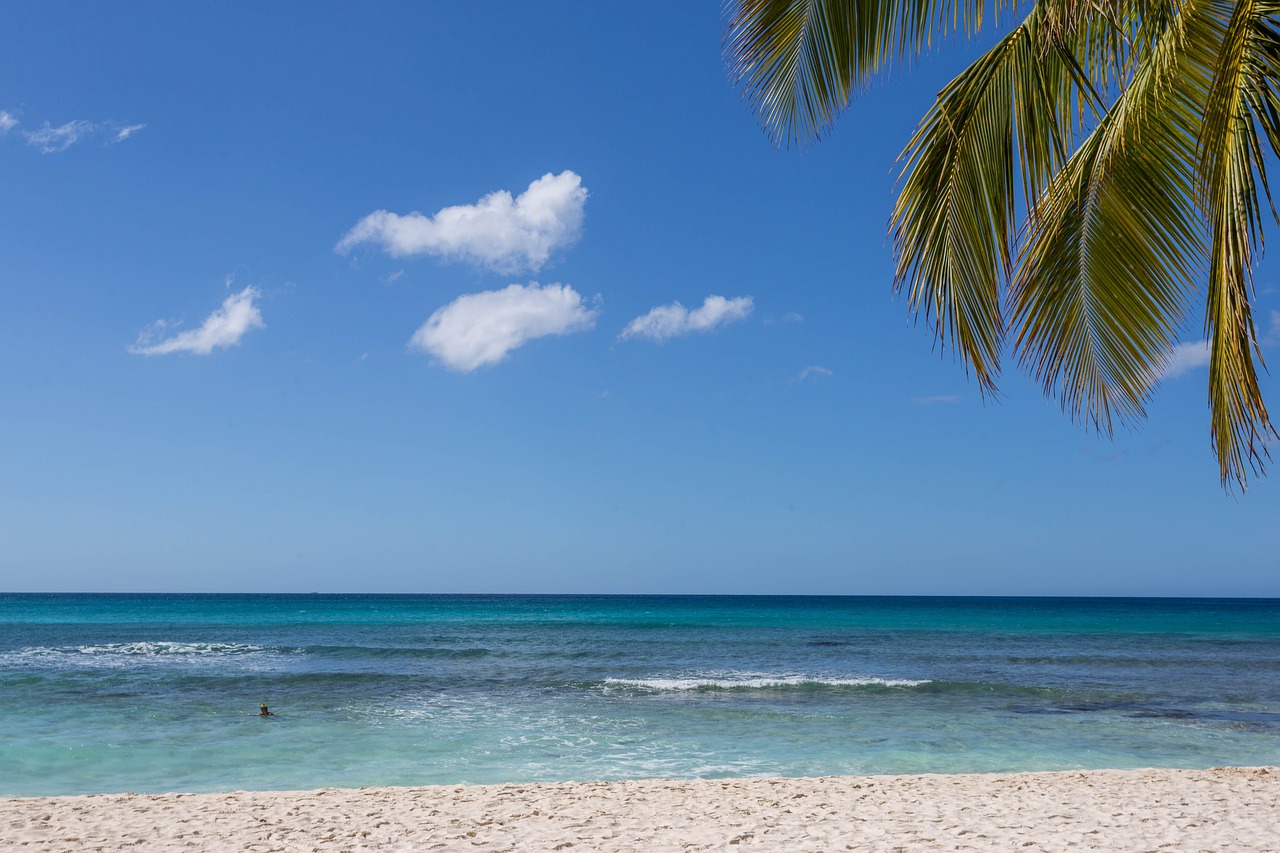Dominican Republic Video
Cultural Sensitivities: Understanding Local Norms in Dominican Republic
The Dominican Republic is a vibrant and diverse country located in the Caribbean region. It is known for its beautiful beaches, rich history, and warm hospitality. To fully appreciate and respect the local culture, it is essential to understand and adhere to the cultural sensitivities and norms that prevail in the country. This article aims to provide a comprehensive guide on the various cultural aspects of the Dominican Republic to help visitors navigate their way through this enchanting destination.
Language: Spanish as the Dominant Language
The official language of the Dominican Republic is Spanish. While some locals may have a basic understanding of English, especially in tourist areas, it is advisable to learn a few basic Spanish phrases to communicate effectively. Locals appreciate the effort made by visitors to speak their language and are often more receptive and accommodating.
- Buenos días: Good morning
- Por favor: Please
- Gracias: Thank you
Use this greeting to start your day and greet people in the morning.
Politeness goes a long way, so don’t forget to use “por favor” when making requests.
Express your gratitude by saying “gracias” whenever someone helps you or provides a service.
Greetings and Personal Space
In the Dominican Republic, greetings play an essential role in social interactions. Handshakes are the most common form of greeting between individuals, regardless of gender. It is customary to maintain eye contact while shaking hands as a sign of respect. When meeting someone for the first time, it is polite to use both their first and last names.
- Abrazo: Hug
- Beso: Kiss on the cheek
- Personal Space
Friends and close acquaintances may greet each other with a warm hug, especially if they haven’t seen each other for a while.
Between close friends and family members, it is common to exchange kisses on the cheek as a form of greeting.
The concept of personal space may vary from person to person, but generally, Dominicans are comfortable with closer physical proximity during conversations.
Religion and Spirituality
The Dominican Republic is predominantly Catholic, with Catholicism deeply ingrained in the culture. Religion plays a significant role in the lives of many Dominicans, and religious festivals and celebrations are an integral part of the cultural calendar. Respect for religious beliefs and customs is crucial when visiting churches or participating in religious events.
- Virgen de la Altagracia: Virgin of Altagracia
- Santería: Santeria
- Respecting Religious Sites
The Virgin of Altagracia is the patron saint of the Dominican Republic. Her feast day, January 21st, is a significant religious celebration in the country.
Santería, an Afro-Caribbean religion, is also practiced by a small percentage of the population. It combines elements of Catholicism with traditional African religions.
When visiting churches or religious sites, it is important to dress appropriately and behave respectfully, refraining from any disruptive behavior.
Food and Dining Etiquette
The Dominican Republic boasts a delicious and diverse culinary scene, heavily influenced by Spanish, African, and Taino indigenous cultures. When dining in the country, there are a few cultural norms to keep in mind.
- La Bandera: The Flag
- Tropical Fruits
- Tipping
La Bandera is the national dish of the Dominican Republic, consisting of rice, beans, and meat. It is a staple in the local diet and reflects the country’s vibrant culinary heritage.
The Dominican Republic is renowned for its abundance of tropical fruits, including mangoes, pineapples, and papayas. Don’t miss the opportunity to savor these fresh and flavorsome treats.
Tipping is customary in the Dominican Republic. A gratuity of 10% is generally expected in restaurants, and it is also customary to tip hotel staff, taxi drivers, and tour guides.
Dress Code and Attire
The dress code in the Dominican Republic is generally casual and relaxed due to the tropical climate. However, when visiting religious sites or upscale establishments, it is important to dress appropriately.
- Beach Attire
- Resort Casual
- Modesty
When at the beach or pool, it is acceptable to wear swimwear and cover-ups. However, it is considered inappropriate to walk around town or enter establishments in beach attire.
Many resorts and upscale restaurants have a resort casual dress code. This typically means wearing smart casual attire, such as collared shirts and dresses for women.
While the Dominican Republic is a tropical destination, it is important to respect local customs and dress modestly when visiting religious sites or rural areas.
Gender Roles and Social Interactions
The Dominican Republic has traditional gender roles, with men typically taking on more assertive and dominant roles in social interactions. However, this is evolving, and women are increasingly assuming positions of power and influence in various spheres of society.
- Machismo Culture
- Respecting Boundaries
- Gender Equality Progress
Machismo, a cultural concept of masculinity, is still prevalent in some areas of the Dominican Republic. It is important to be aware of this cultural dynamic and act respectfully towards both men and women.
Respecting personal boundaries and avoiding unwanted advances or inappropriate behavior is essential when interacting with locals.
The Dominican Republic has made significant strides towards gender equality, and women are increasingly empowered and active in various sectors of society.
Music and Dance: Merengue and Bachata
Music and dance are deeply ingrained in Dominican culture, with merengue and bachata being the most popular genres. These vibrant and rhythmic styles of music are often accompanied by lively dance performances.
- Merengue
- Bachata
- Festivals and Celebrations
Merengue is the national dance of the Dominican Republic. It is characterized by fast-paced movements and lively beats, often played with traditional instruments like the accordion and tambora.
Bachata is another popular dance style in the Dominican Republic, known for its romantic and sensual movements. It has gained international recognition and has influenced the music industry worldwide.
During festivals and celebrations, music and dance are integral parts of the festivities. Visitors are encouraged to join in the fun and immerse themselves in the vibrant rhythms of the Dominican Republic.
Respecting Nature and the Environment
The Dominican Republic is blessed with stunning natural landscapes, including pristine beaches, lush rainforests, and majestic mountains. It is essential to respect and preserve the environment while visiting.
- Beach Cleanliness
- Protected Areas
- Ecotourism Opportunities
When visiting the beaches, it is important to clean up after yourself and dispose of trash responsibly. Avoid leaving behind any litter that could harm the marine ecosystem.
The Dominican Republic has several national parks and protected areas. When visiting these sites, follow the designated trails, respect the flora and fauna, and avoid littering or damaging the natural surroundings.
Explore the various ecotourism opportunities in the Dominican Republic, such as hiking, birdwatching, and exploring natural reserves. These activities promote sustainable tourism and help conserve the country’s natural treasures.
Family and Respect for Elders
Family is highly valued in Dominican culture, and respect for elders is of utmost importance. The concept of extended family is prevalent, with close-knit communities and strong family bonds.
- Familismo
- Respecting Elders
- Family-Oriented Festivities
Familismo refers to the strong sense of loyalty and commitment to family. Dominicans often prioritize family needs and maintain close relationships with extended family members.
Elders are highly respected and revered in Dominican society. It is customary to address them using formal titles, such as “Señor” or “Señora,” and show deference in conversations and interactions.
Family-oriented celebrations, such as birthdays, anniversaries, and holidays, are important occasions for Dominicans. Visitors may have the opportunity to witness and participate in these joyous festivities.
Socializing and Time Management
Socializing and spending time with others are integral parts of Dominican culture. Dominicans are known for their warm and hospitable nature, and they value social connections.
- Informal Invitations
- Punctuality
- Sharing and Generosity
Invitations to social gatherings are often informal, and it is common for plans to be made spontaneously. Flexibility and adaptability are key when it comes to socializing in the Dominican Republic.
Dominicans have a more relaxed attitude towards time, and it is not uncommon for social gatherings to start later than scheduled. It is advisable to be flexible and understanding in such situations.
Dominicans are known for their generosity and willingness to share with others. It is common for people to offer food, drinks, or assistance without expecting anything in return.
Conclusion
By understanding and respecting the cultural sensitivities and norms in the Dominican Republic, visitors can have a more immersive and enriching experience in this captivating country. From language and greetings to food and music, embracing the local customs will enhance interactions with locals and foster a deeper appreciation for the vibrant Dominican culture.
Dominican Republic Image 1:

Section 4: Socializing and Time Management
Dominican Republic Image 2:

Section 8: Music and Dance: Merengue and Bachata
Dominican Republic Image 3:

Section 12: Family and Respect for Elders
References
- dominicanrepublic.com
- lonelyplanet.com
- worldtravelguide.net
- rdvisitor.com
- gothedominicanrepublic.com


